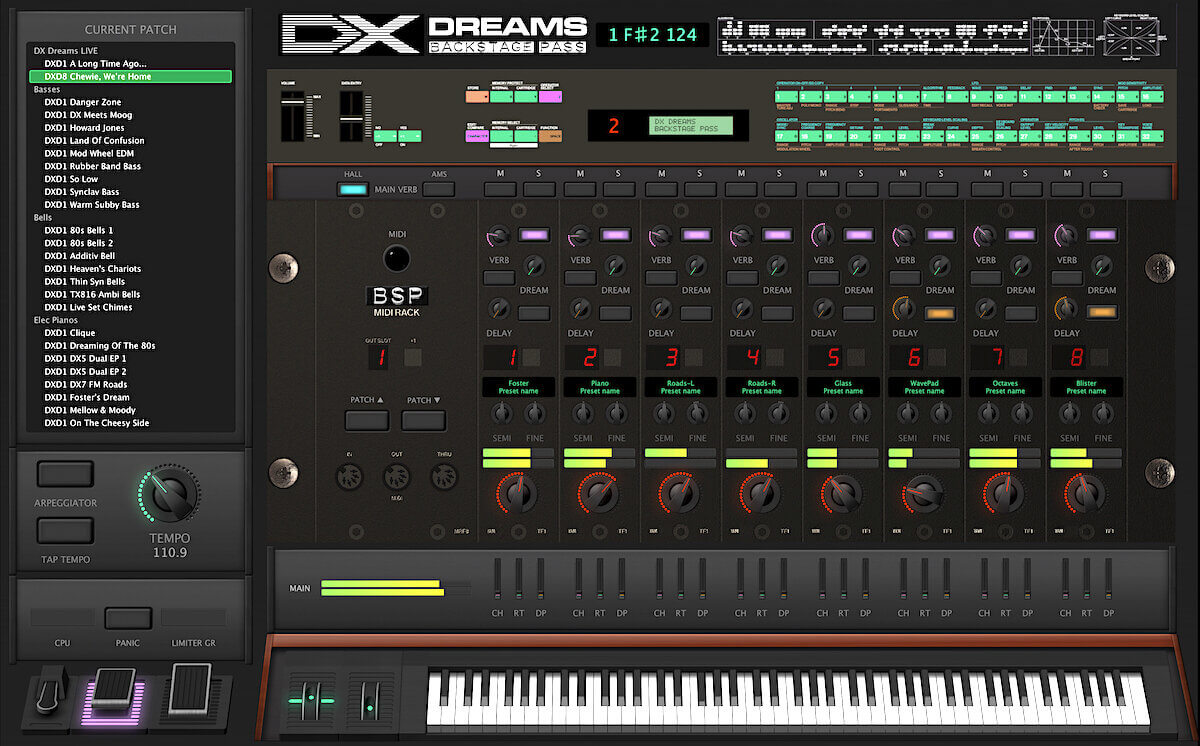A LEGEND Reborn
In 1983, the Yamaha DX7 changed everything. It had a sleek new look, a new type of synthesis, and a whole new sound: pristine, precise… digital.
The sound of the DX7 was everywhere for much of the 80s, and it is a big part of countless hit songs.
The thing is, a DX7 isn’t all that inspiring by itself: it’s mono and has no built-in effects. Yet almost 40 years later, it remains extremely expressive and capable of some incredible sounds.
But the real magic happens when you layer multiple DX7s together, which was the concept behind the TX rack system: it had up to 8 modules (each equivalent to a DX7) that could create some truly massive sounds when layered together.
Those sounds are like nothing else to this day, and DX Dreams captures that magic to create a whole new experience for today’s players and sound designers.

Features
- Over 30 GB of meticulously sampled content
- Stunning production-ready sounds sampled through the hit-making hardware of the DX era
- Built from the ground up for uncompromising performance in a live setting
- Virtual “TX Rack” featuring realtime control over major sound shaping aspects that weren’t available on the original hardware
- Layered Combination Patches
- Famous “Icons” Patches
- A new TouchOSC controller file
Iconic Radio-Ready Sounds
DX Dreams starts with meticulously deep-sampled sounds recorded in stereo (when applicable) from as many as eleven DX7s all playing at once, and all recorded through iconic 80s hardware: 1073-style preamps, various analog tape models, Roland Dimension D chorus, and AMS or Lexicon reverbs.
So, while other virtual DX instruments give you a single DX7, a single DX Dreams patch can give you big, layered, fully produced sounds that would be impossible without stacks of real DX synths processed through iconic hardware that helped make some of the biggest hits in music history.
DX Dreams gives you access to those sounds the way they were meant to be heard, but it can also can form the foundation of new, forward-thinking sounds nobody has heard yet. For the first time since the 80s, you can now play the sounds that defined a generation, as we heard them.